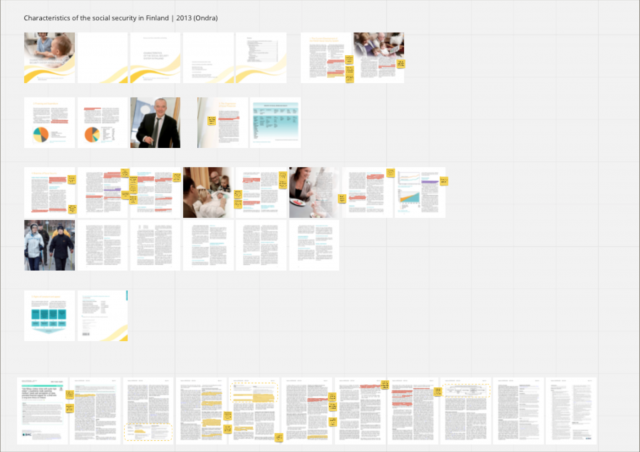This blog post reports on work-in-progress within the DfG course! The post are written by the group dealing with the brief on ‘Pilot project for Personal Budgeting Model’, provided by the Ministry of Social Affairs, Finnish Institute for Health and Welfare (THL), and the Social Insurance Institution of Finland (Kela) in collaboration with the ORSI project.
—
Group 1A: Senni Alho, Katriina Kenttamies and Naiquan Gu from the Creative Sustainability program, and Ondřej Zajíc from the Collaborative and Industrial Design program.
For the second week now, our group is exploring the brief of personal budgeting models for people with disabilities and finding out about some of the involved parties – Kela, THL, the Ministry of Social Affairs and the local municipalities. It was great to meet representatives of each party in a virtual roundtable on a video call on Monday 8th of March; this discussion enabled us to start to grasp what our project will be about and prepare better for our interviews with more people related to the project.
The first learning of the two first weeks was that the project is extremely complex. For example, there are many kinds of disabilities and each person with a disability has different needs. The benefits and services are provided by many different organizations and we were struggling to understand how the current system works, as an outsider. This complexity was overwhelming for us at first, making it hard to understand the whole problem space. Gradually we learned though, that it is ok not to understand everything in the beginning. This also gave us a good lecture that it’s better to ask stupid questions than to miss out on important information.
The project is complex, and we felt like the brief is quite ambiguous. We were not sure if our project is about designing ways how involved parties could collaborate to create a suitable personal budgeting model or about creating the actual personal budgeting model. Thus, it was tempting for us to start narrowing down the scope to make it easier. However, we learned that in this course it is ok to first explore the problem space and redefine our brief, i.e., narrow down the scope only after the research, five weeks into the project. This gives us time to get a deep understanding of the problem space first.

Finally, from the first interviews, we learned about one of the biggest issues of the current system. When a person becomes disabled it is very challenging for that person to learn what benefits and services he or she is entitled to. The doctors who give diagnosis don’t often have enough information they could provide. Next, the application process for the benefits and services is extremely complicated, takes a lot of time and doesn’t always grant the needed benefits and services. This made us question whether these underlying issues of the current system are more crucial to resolve than creating a new personal budgeting model.
To conclude, the first two weeks in the course were a wild ride with discovering how complicated the topic is and realizing there are multiple areas our project could focus on. We learned to be comfortable with the uncertainty of where this project will go and what problem exactly we will solve. All while realizing the value of collaboration and keeping the conversation with other groups. If you’re interested, you can learn more about the project on the THL website (Finnish only).
—
